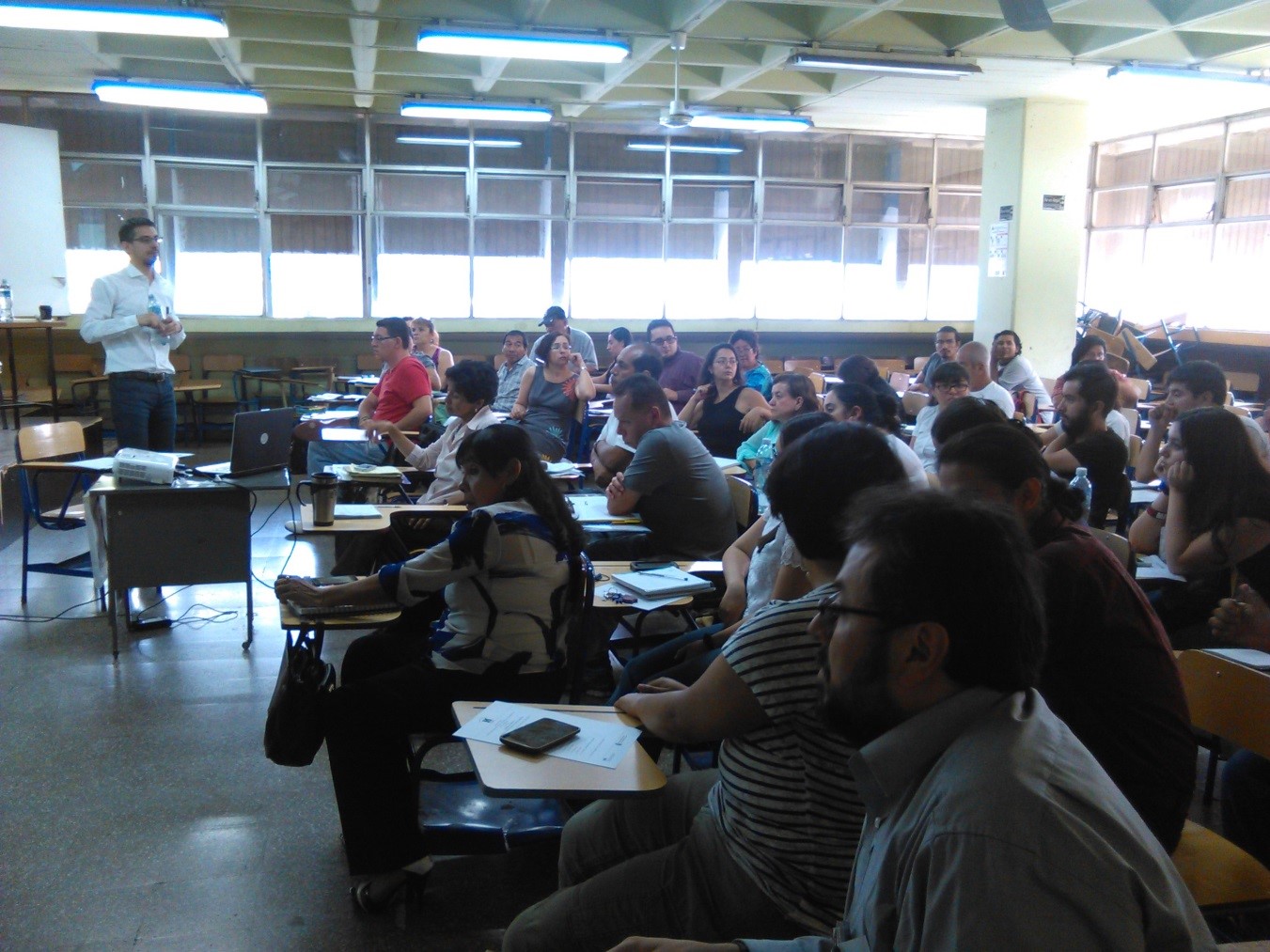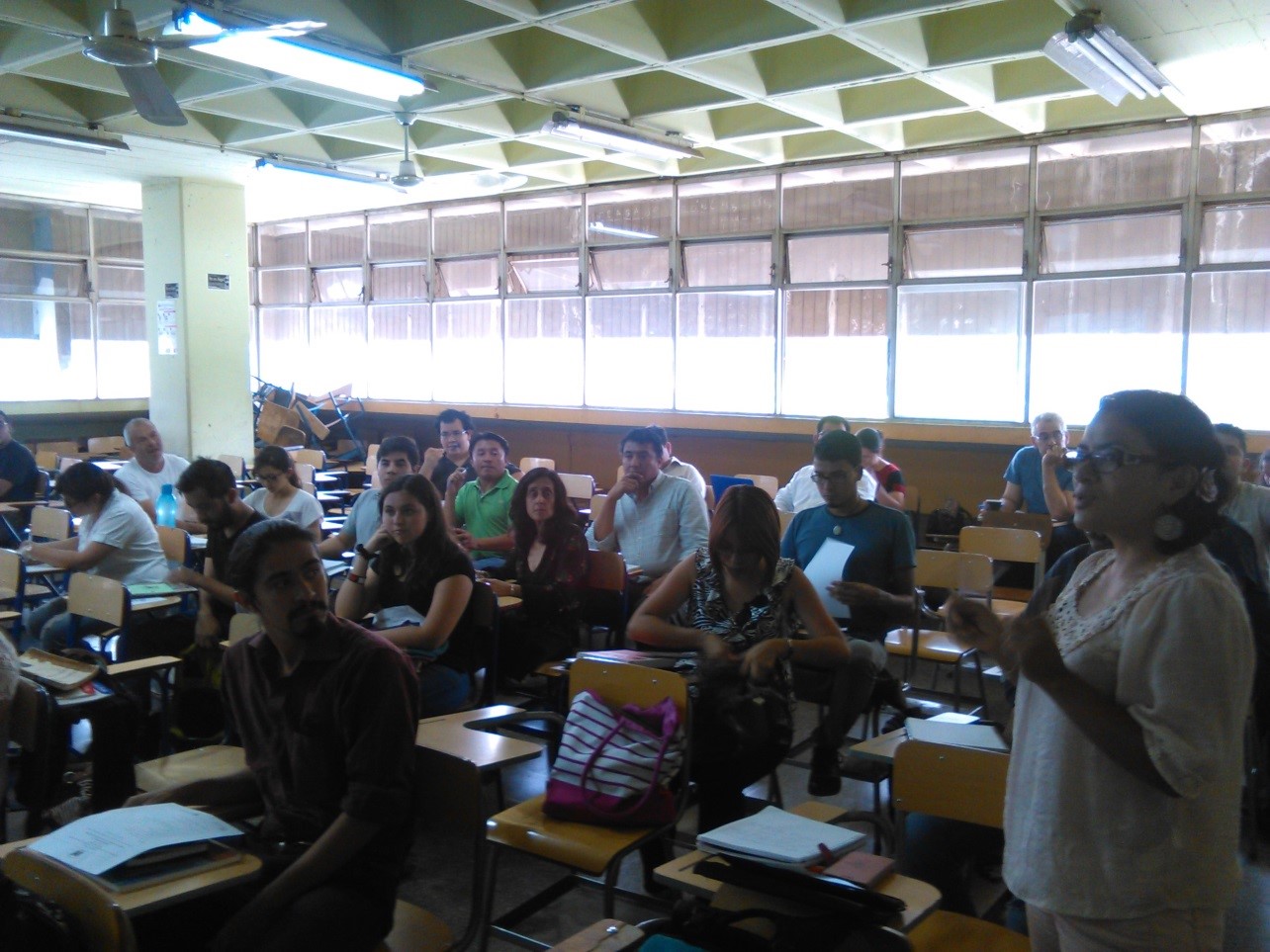Short course on “Comparative Methods: Between case studies and statistical analysis” held at the University of San Carlos de Guatemala
Within the framework of the R4D project on “Ethnic Power Relations and Conflict”, the Institute of Historical, Anthropological and Archaeological Studies at the Universidad de San Carlos de Guatemala held a short course on comparative methods on April 12th -14th. The course was taught by Dr. Manuel Vogt (Princeton University and ETH Zürich) and brought together a large audience of students, researchers and faculty.
As part of a series of lectures taking place over three days, Dr. Vogt discussed the epistemological foundations of comparative methods from the perspective of both qualitative and quantitative research. To illustrate his argument, Dr. Vogt relied heavily on previous comparative analyses. Indeed, drawing on a review of the literature, Dr. Vogt highlighted how comparative methods enable social sciences researchers to reach systematic conclusions, thereby obtaining a more complete picture of the social and political context of the region.
The short course was of particular value to people interested in using novel methods in social sciences. Indeed, participants were drawn from a wide social sciences background, among others: archeology, anthropology, sociology and political sciences, with most of the audience composed of young scholars at the beginning of their career. Also present were members of the Institute of Interethnic Studies (Instituto de Estudios Interétnicos ̶ IDEI), of the Women Institute (Instituto Universitario de la Mujer ̶ UMUSAC), and of the School of Political Science (la Escuela de Ciencia Política) of the University of San Carlos de Guatemala. It is expected/HOPED that this short course will have provided the necessary tools that, along with a critical perspective on social phenomena, will enable to leverage distinct research on Guatemalan society.
For more information, please see the .

